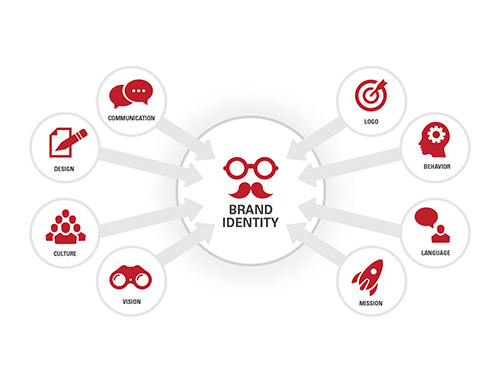
To date, The Quell Group has conducted audits of more than 460 websites using our proprietary QSearch tool. This diagnostic software helps uncover more than 40 different technical issues that can impair website capabilities in search, usability, performance, social and site security.
We compiled the results of the most recent 150 website audits conducted in 2019 to identify the frequency of these issues and their resulting impact on the overall website grade (A+ to F-) in QSearch. Improving a website’s grade by addressing these critical issues ensures a better user experience and improved ranking and visibility by search engines. These four recommendations are the highest priority and can be most detrimental to a website’s overall performance grade. If remedied, however, they can improve your website almost immediately.
- Include a Meta Description (Average Grade of Audited Websites: C+)
29% of websites had no meta description at all, and another 8% of websites had a description that was an incorrect length. Title tags and meta descriptions are some of the most important signals for search engines to understand the content on your website, but they also need to be compelling to human visitors. This metadata appears on search engine results pages and in social posts when content is shared, making it critical to create titles and descriptions that are keyword- and space-optimized for SEO, but also persuade users to click through for more information. - Reduce Your Total Page File Size (Average Grade: C+)
21% of websites we audited have a very large page size (over 5MB), which can reduce load speed and impact user experience. Our QSearch audit process breaks down page size into HTML, CSS, Javascript, images and other components to see where page size can be reduced. Properly formatting and compressing images – which typically constitute the bulk of page size – can have a significant positive improvement on page load performance.The QSearch process also identifies the number of resources pulled, and having more files to retrieve increases the number of server requests and slows performance. Removing unnecessary files or consolidating files like styles and scripts where possible can also have a dramatic improvement on page load times and user satisfaction. - Execute a Link Building Strategy (Average Grade: C)
While machine learning and widespread use of low-quality purchased links to “game” SEO have reduced the importance of backlinks (incoming links to your website) in search engine algorithms, it is still important to develop an overall strategy for linking to related sites that are not competitive. Establishing reciprocal links with authoritative and relevant websites can help improve your own website’s authority, relevance and ranking potential.In our audit, 13% of websites were found to have little if any backlinks. Creating thought leadership content for your website, sharing it widely on social media, submitting to directories, and guest blogging for other websites are just a few of the strategies that can help advance a successful link building strategy. - Add a Title Tag (Average Grade: C)
While only found on 2% of websites, another 30% of websites feature title tags that are an incorrect size. This is one of the easiest-to-fix issues with a website, and is typically done in tandem with an overall review of meta descriptions. The most important pages of the website are identified, and new keyword- and space-optimized titles and descriptions are written to ensure that both are working together for SEO and to provide compelling snippets on search engine results pages (SERPs). This is one of the most cost-effective fixes a website owner can make to drive higher rankings and increased organic search traffic.
Of course, our QSearch tool is most useful for uncovering the technical issues your website may have. It can’t tell you if you have customer-centric content, a consistent user experience, robust conversion opportunities, integration with CRM or marketing automation platforms, or key messaging that supports your overall branding and positioning objectives. Evaluating those website attributes are just as important – perhaps more so – and require the skill and insight of digital marketers with decades of experience like those at The Quell Group.
Let’s get it started. Contact our digital team to find out how we can get you on the path to a better website starting today.





